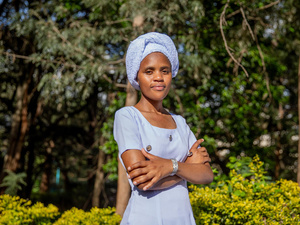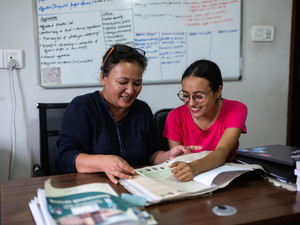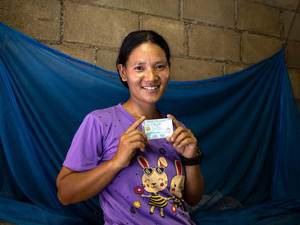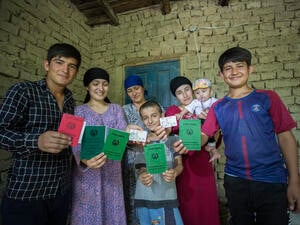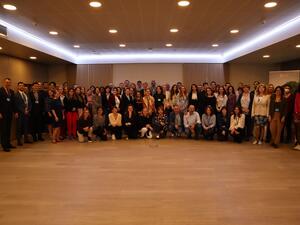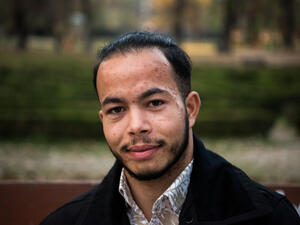Statelessness: Living the South African dream on borrowed time
Statelessness: Living the South African dream on borrowed time

Undocumented and stateless, welder Jabulani Sibanda sits with pride in the car he has worked hard to buy, adamant that his status won't deter him from living as productively as possible.
MUSINA, South Africa, October 10 (UNHCR) - At a glance, Jabulani Sibanda is living the South African dream. At 31, he is married with two beautiful children, and has a car, a house and his own business.
But Sibanda doesn't really own much of his life because he is stateless. Despite years of trying to obtain legal documents of his citizenship and residency status, he remains undocumented. Without them, he is resigned to living quietly and unobtrusively under the radar of officialdom.
"I always find myself back at square one," he said, shrugging at the repeated obstacles he faces. "I know no other life but one of being sent from pillar to post, begging and ingratiating myself into and out of situations. It is my life."
Sibanda's problems started when he was seven, when he and his mother crossed illegally from Zimbabwe into South Africa. She was of Malawian origin and lived in Zimbabwe and then in Musina in the north of South Africa. When her son was 15, she abandoned him with the family that had taken them in.
Despite childhood memories of living in Bulawayo, Zimbabwe, Sibanda had no luck tracing a birth certificate through Zimbabwean authorities or obtaining proof that he is considered a Zimbabwean national. Without any documentation, Sibanda could not attend school in South Africa.
His case is not unique. It highlights an area of South African law that is not developed, said Rosalind Elphick, a lawyer working on the UNHCR Regional Statelessness Project with the agency's implementing partner in Musina, Lawyers for Human Rights (LHR).
Although the South African Citizenship Act of 1995 offers citizenship to children born in the country who would otherwise be stateless, no legislation exists to protect people who are stateless but who are not refugees.
The problem of statelessness is believed to affect thousands of people in South Africa.
Against the odds, Sibanda has survived by his wits and the kindness of friends and strangers. He taught himself as many of South Africa's 11 languages as possible, which allows him to blend in or extricate himself from legal situations.
But he has never left the only South African town he knows. "If I get arrested on my way to Johannesburg or any other place with no documentation, where will I end up?" he asked. "I would rather be safe than sorry."
At 17, he became an apprentice to a local welder in Musina. After three years in training, he became a self-employed welder. He married a South African woman and made sure that his children were registered at birth.
LHR is applying to the Ministry of Home Affairs to grant him permanent residence based on his good character, integration into South African society and self-sufficiency. His is seen as a test case that could set a precedent for other stateless people.
"He no longer has ties to Zimbabwe or Malawi. He lived in the former country as a minor and has never been to the latter," said LHR's Elphick. "He has lived most of his life in South Africa and is in this situation through no fault of his own."
"Without the correct documents I cannot buy anything in my name, so everything I own actually belongs to someone else," he said. "I must always be careful how I conduct myself because the wrong move could mean my property being taken away from me."
Despite his situation, Sibanda's business is doing well and he "owns" a second-hand car and property like many locals. To hold onto his property, he has trained himself to adapt to the whims and personalities of his many benefactors.
He added, "Life goes on. I'm not going to let this problem slow me down. I have a family to look after and I will do what I have to, to keep my family together."
By Pumla Rulashe in Musina, South Africa

